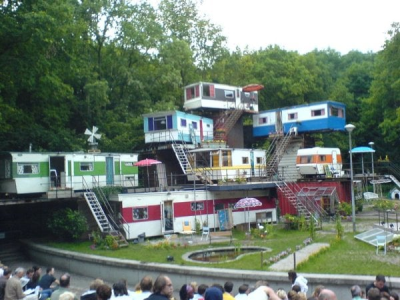heelfan108
Active Member
- Messages
- 43
For whatever reason, no one seems to like the idea of bringing back mass public housing. Here are some ideas: https://bipartisanpolicy.org/blog/10-actions-to-housing-affordability/
Follow along with the video below to see how to install our site as a web app on your home screen.
Note: This feature may not be available in some browsers.
This is the biggest issue. Companies buy up all the stock of anything in the starter home range and lock a whole subset of the population into being forever-renters. It’s so gross.Limit the ability of “corporate” landlords to buy all the homes in the “starter home” price range. They just turn them into rentals which reduces the owner-occupied ratio in those neighborhoods.
Ever hear of Cabrini Green?For whatever reason, no one seems to like the idea of bringing back mass public housing. Here are some ideas: https://bipartisanpolicy.org/blog/10-actions-to-housing-affordability/
I don't disagree in theory but how do you do this? Seems everyone is looking to get into the rental business. Even me. I'm just not plugged into the banks as some others are to identify foreclosures before they hit the open market.Limit the ability of “corporate” landlords to buy all the homes in the “starter home” price range. They just turn them into rentals which reduces the owner-occupied ratio in those neighborhoods.
Or related ,the ARBNB businessI don't disagree in theory but how do you do this? Seems everyone is looking to get into the rental business. Even me. I'm just not plugged into the banks as some others are to identify foreclosures before they hit the open market.
For whatever reason, no one seems to like the idea of bringing back mass public housing. Here are some ideas: https://bipartisanpolicy.org/blog/10-actions-to-housing-affordability/

A good private/public partnership is part of the answer Landlords don't get rich-but a steady income. Renters get a decent place to stay A company owning 300 units-not so muchIn my opinion, bring back new public housing should be part of the solution. Rents are adders starting with the cheapest option. If you can get a bare bones 2bedroom public housing apartment for $600/mo in a so-so neighborhood, you'll be willing to pay a little more ($750/mo) for a nicer unit in a so-so neighborhood and a little more ($900/mo) for a nicer unit in a good neighborhood and a little more ($1,200/mo) for a "luxury" unit in the area and maybe $1,500 to rent a 2bedroom house in the same area.
The price of the cheapest options dictates pricing for everything else - assuming there is ample availability of the cheapest price point.
Very Rio De Janeiro chic
The bubble won't burst as long as supply is constricted and there are people with the money to pay these prices. There isn't a "market solution" to this problem. We are living with the market result. Intervention will be required to get things back in balance. That intervention will probably have to include zoning changes (not allowing zoning requiring single family homes....you can build multi-family anywhere in a jurisdiction,) more public transportation infrastructure with an accompanying reduction in parking requirements (I understand new constructions costs are $50K per parking space required in urban areas.)A house down the road was built 5 years ago for $800,000
Those people sold it 2.5 years ago for $1.4 million
The new buyers just listed it for $2.2 million
That's beyond asinine. And yeah the bubble needs to burst. 30%
Yes some people would be hurt but more people are hurt by never being able to enter the market in the first place
